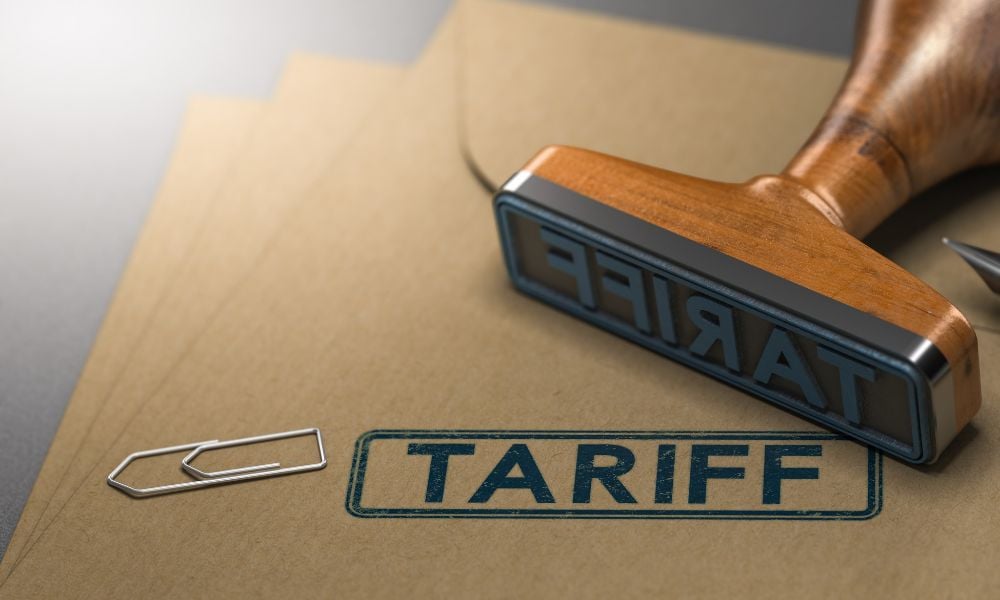Trudeau government explores export taxes and retaliation plans as US-Canada trade tensions escalate

Canada is developing extensive tariff measures against US products in response to Donald Trump’s proposal to impose 25 percent levies on Canadian exports, according to sources cited by BNN Bloomberg.
Officials stated that the proposed retaliatory tariffs would go beyond the limited countermeasures used during the 2018 trade dispute.
During the 2018 trade dispute, Canada targeted items like bourbon whiskey from Republican strongholds in the US. This time, the list includes similar products, as well as new ones like Florida orange juice.
According to one government official, a draft plan being circulated internally covers nearly every product the US exports to Canada, aiming for a ‘dollar for dollar’ response.
Officials acknowledged that a comprehensive match may not be feasible if Trump imposes tariffs on all Canadian exports.
However, Prime Minister Justin Trudeau’s government is exploring ways to make US exporters feel the economic pain while still aiming to avoid a trade war.
Trump’s recent comments suggesting Canada should become the 51st US state, made during a press conference on Tuesday, provoked strong reactions in Canada.
Speaking to CNN, Trudeau dismissed the annexation remarks as a distraction from the negative economic consequences of Trump’s proposed tariffs.
“What I think is happening in this is President Trump, who’s a very skillful negotiator, is getting people to be somewhat distracted by that conversation,” Trudeau said.
Trudeau plans to leave office in March and has decided not to lead the Liberal Party into the next election.
Canada is the largest national buyer of US goods, importing US$320bn worth of products in the first 11 months of last year.
However, the US trade deficit with Canada during that period stood at US$55bn, based on US Commerce Department data.
If Trump implements the tariffs, Canada’s GDP could take a hit of up to 3.8 percent, according to Bank of Nova Scotia economists. Full retaliation would raise the GDP impact to as much as 5.6 percent, though this damage would accumulate over several years.
Trevor Tombe, an economics professor at the University of Calgary, explained that while retaliation would come at a cost to Canada, it could also raise economic costs for the US.
“The GDP hit is higher if we retaliate than if we don’t. Of course, that is a cost that might be worth paying, since retaliation also increases the economic cost in the US,” Tombe said in an email.
Trudeau’s government is considering export taxes on strategic commodities like oil, uranium, and potash to pressure US markets.
While Canada’s metals exports, particularly aluminum, have largely avoided criticism, aluminum producers such as Rio Tinto and Alcoa have benefited from additional shipping and logistics charges.
Canada also faces renewed US focus on the steel industry, with American steelmakers alleging transshipment of steel through Mexico into the US. Canada, however, has not been a major target of these claims.
Officials have debated whether to release a draft list of retaliatory tariffs before Trump’s inauguration.
Given the uncertainty about Trump’s actual plans, the list may only be published after his administration’s actions become clear.
During the 2018 trade spat, the dispute was resolved when the US, Mexico, and Canada agreed to a revised regional trade deal.
However, Canadian officials expect renewed pressure on the trading relationship, which is worth more than US$900bn annually in goods and services.
Brian Hughes, a spokesperson for Trump’s transition team, stated in an email that Trump plans to pursue aggressive trade policies.
“President Trump has promised tariff policies that protect the American manufacturers and working men and women from the unfair practices of foreign companies and foreign markets. As he did in his first term, he will implement economic and trade policies to make life affordable and more prosperous for our nation,” Hughes said.



